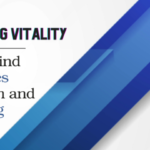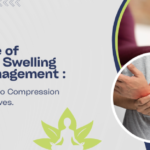INTRODUCTION
Pregnancy and childbirth can be wonderful, life-changing experiences. They may, however, be physically and emotionally exhausted as well. The hormones that surge through your body during pregnancy can make you feel extra emotional, anxious, or sad. And then there are sleepless nights and the overall stress of caring for a child, which just increases the pressure!
So how do you cope? It’s important to remember that postpartum depression and anxiety are normal after childbirth, especially if it’s your first time having children. But there are ways to manage these feelings so that you can get back on track with your everyday life (and enjoy those cuddles with the baby). Here are some tips for staying healthy both mentally and physically during this transitional period in your life.
POSTPARTUM DEPRESSION AND ANXIETY ARE COMMON, BUT THEY CAN BE TREATED
Postpartum depression affects up to one in seven women after childbirth. It’s not your fault and you are not alone: Postpartum depression is a real medical condition that requires treatment. If you think you may have postpartum depression or anxiety, it’s important to seek help from your doctor or other healthcare provider as soon as possible–even if it feels like an inconvenience at the time.
REACH OUT TO YOUR SUPPORT NETWORK
When you’re feeling down or overwhelmed, it can be helpful to reach out and talk with someone who understands what you’re going through. This could be a partner, family member, or friend; it might also mean seeking help from a mental health professional such as a therapist or doctor.
Join a support group for new mothers in your area (check the resources section below). Support groups allow people with similar experiences to meet up regularly and share stories about their lives as new moms–including positive experiences and challenges they have faced along the way.
Get involved in community activities that interest you: joining an exercise class at the gym, volunteering at church, or helping out at school with events like field day or book fairs…the possibilities are endless! Getting connected will keep you busy while providing opportunities for social interaction that can help lift spirits when feeling down on those rainy days when everyone else seems happy except me…I feel so isolated sometimes…”
IDENTIFY WHAT STRESSES YOU OUT, THEN TAKE STEPS TO RELIEVE IT
Stress is a common trigger for depression and anxiety. It’s important to identify the things that stress you out and then take steps to relieve them. Stress can come from many sources: a demanding job, caring for children or elderly relatives, financial problems, lack of exercise, and poor diet. Stress also results from poor time management and planning–for example, being late for work every day because you forgot to set your alarm clock running out of milk on the way home from work, and having no food in the house when everyone gets hungry at dinner time!
Make sure that every day has an agenda so that you don’t have any surprises during the day so that you can address these issues head-on and reduce their impact on your mental and physical health. This will help our lives to run smoothly while at the same time giving us a chance to enjoy things that we like doing most of all: quality spending with family members before bedtime.”
MAKE TIME FOR YOURSELF
It can be hard, as a new mom, to get the time for yourself. But it’s also very important to look after your emotional well-being, like your physical health. You’re entitled to some time off each day, and you should spend it doing things that make you happy such as reading books or going on walks with your baby in the park. It’s not a shame to take time off; at home, there will be plenty of nice laundry for you!
Your mental health is just as important as your physical health after childbirth it’s not only normal to feel overwhelmed and exhausted, but it’s also okay to have negative emotions or thoughts in the postpartum period There’s no need to be hard on yourself if you don’t feel like you’re doing everything perfectly
CONCLUSION
We hope that this article has provided you with some helpful tips on how to care for your mental health. Many resources are out there, so don’t be afraid to reach out if you feel something isn’t right or want more information. The most important thing is that we all take care of ourselves–both physically and emotionally–so we can continue loving our families in the best way possible!



